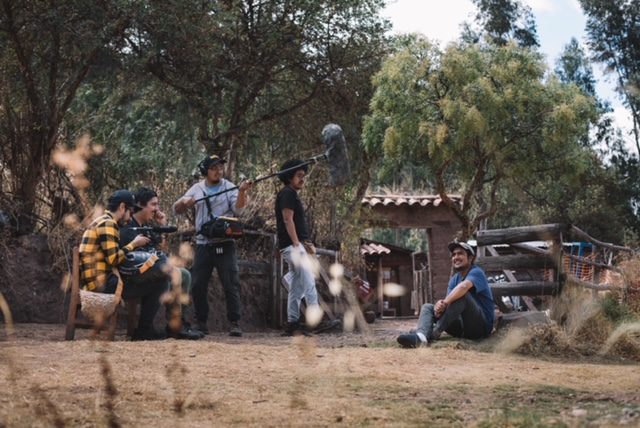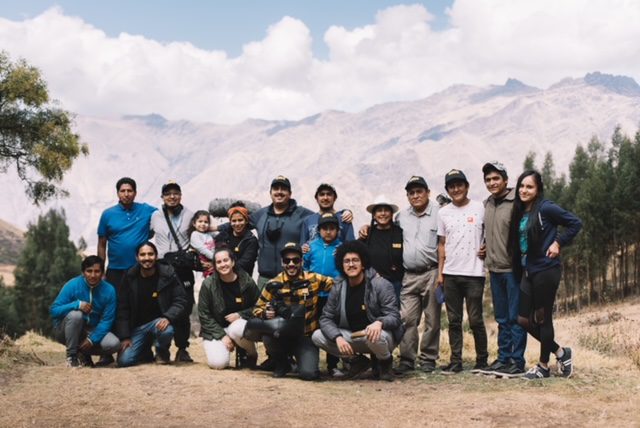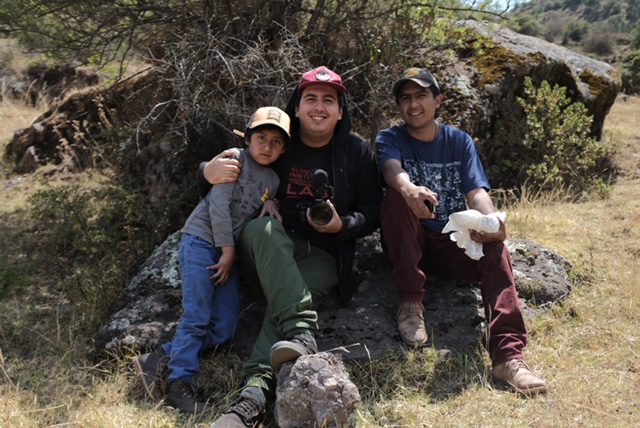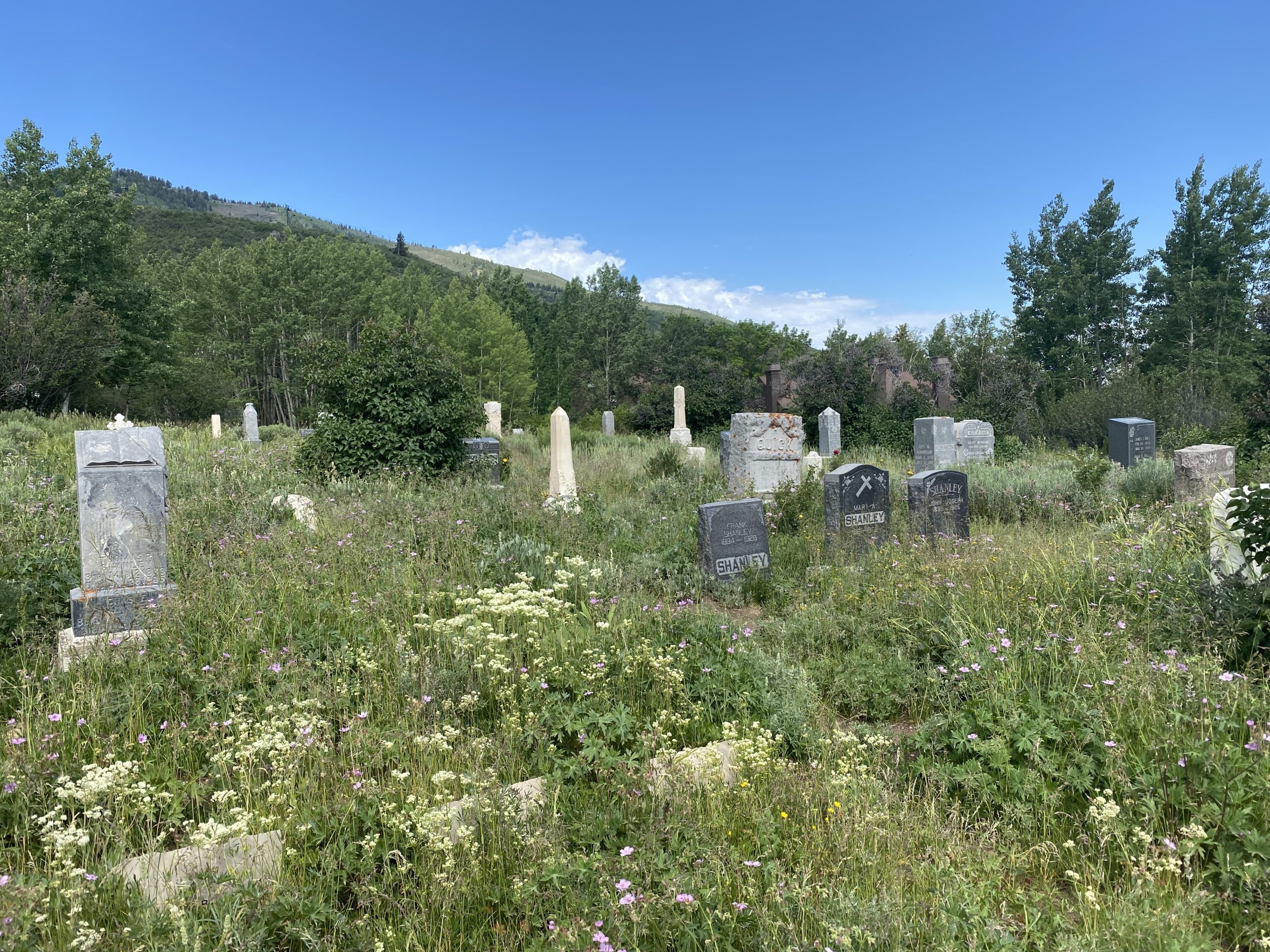Arts & Entertainment
Hakuchu Munayta, Peru’s Sundance Film Fest hopeful

On the filmming set in Peru for the documentary Hakuchu Munayta. Photo: Augusto Zagarra.
PARK CITY, Utah — In the 2024 Sundance Film Festival, movie-goers might get to watch a documentary entitled Hakuchu Munayta. They certainly will if filmmaker Augusto Zegarra has anything to say about it. A Sundance film’s road from conception to premiere can be a long and winding one, which simply makes acceptance into the Festival Program much more of an achievement.
This film tells the story of a young indigenous man trying to save a language from extinction. Fernando is a voice actor from Cusco, Peru, who dreams of dubbing the beloved film The Lion King to Quechua, the language of the Incas. His journey to achieve this dream will make him re-examine his identity and test his commitment to his native language and culture. Along the way, he questions his role as a father and the cultural heritage he passes on to his young son Dylan.
The film explores the themes of indigenous culture, identity, parenthood, racism, and linguistic discrimination.
Zegarra told TownLift, “I wanted to make this film because I think it’s urgent to talk about Quechua, the most spoken indigenous language of Latin America with 10 million speakers spread around five different countries. Although it is the 2nd official language of Peru, there are many stigmas surrounding it (mainly discrimination), so the newer generations are not choosing to speak it. Also, at a personal level, my mother is from Cusco, and I have always been connected to the Andean world but never like during the process of this film.”
The idea came to him after he saw one of the videos Fernando put on YouTube. It was the Quechua version of the famous song Hakuna Matata from the Lion King. He wanted to make a film about the people behind it; it was a big surprise when he learned it was only Fernando and his young son doing all the voices of these small scenes and clips dubbed to Quechua.
“I am hoping that people, after watching the film, will understand that it’s fair that children and adults that speak different indigenous languages have a right to watch films and content in their own language. Also, that language is a world view, so when a language dies, a world view dies, and in current times we need to look more towards the indigenous cultures and their understanding of the planet.” Zegarra said.
The film, which has subtitles, was shot in Cusco, Peru, and a small part in Lima. It’s in Quechua, Spanish and English.

Zegarra has been to the Sundance Film Festival eight times in his life; it was his first contact with a big festival 15 years ago. He went to school in Utah, so he would come every year to get inspired by films and meet filmmakers. “It is still my favorite film festival in the world.”
He graduated from the University of Utah with a bachelor’s in Fine Arts in Film and New Media and works as a director and producer in his own production company: Alaska 88, based in Lima, Peru. Alaska 88 specializes in short documentaries and corporate videos. His brother Diego has his Bachelor of Science in Marketing from the University of Utah. He’s Vice President of Equity and Impact at Park City Community Foundation and works with Park City’s Solomon Fund. Claudia, their sister, has her Bachelors in Communications, MFA in Documentary Filmmaking, Masters in Cultural Managing, and MFA in Film Curatorship.
“If and when Hakuchu Munayta gets seen in the Sundance Film Festival, we would definitely try to bring my whole family, and Fernando and his family, to Sundance to see the film and celebrate that moment together. We are taking it one step at a time, though, at this point, our only goal is to finish the film in the best way possible,” Zegarra said.
Zegarra obtained a coveted Documentary Film Program Production grant from the Sundance Institute, which covers approximately 12% of the film’s budget.
“It felt like a dream come true,” he said, learning he won the grant. “Honestly, the support we get from the Sundance team means much more than the money we received. I was lucky to be an intern at a lab back in 2012, and I saw how much they cared for their artists and always dreamed of getting their support in the future. I can’t believe it happened in my first feature film.”
They need only the last 33% of the film funded, having contributed 25% of the movie in total, with the rest coming in through grants. For the last six years, any money done through the production house has been reinvested in the film.

“Were this film [to] be selected, not only would it mean a lot for me personally because of what type of platform this festival is, but I believe it would be huge for Fernando, the main character, the Quechua culture, and indigenous languages,” Zegarra said.
Cast and crew have finished production and are currently working in the post-production process. A last injection of donations could pay dividends and be helpful towards those all-important finishing touches, without which no film is complete. In some cases, the Hakuchu Munayta filmmakers are lucky to have companies donate their time and resources to help. “If an editor and/or marketing company that maybe has some time and energy after the 2023 Sundance Film Fest would consider consulting or donating their talents, skills, and passion to our film, it would be much appreciated.”
The future looks bright for Zegarra and his production company. They have a couple projects in the works in Peru which explore cultures in different ways through dancing festivities and a documentary on a native musician.
“But honestly, now, due to the current socio-political situation in Peru, I feel the urge to make a film about our fragile democracy and all the abuses that are being perpetrated specifically against indigenous people.”
If anyone is interested in helping the film team finish Hakuchu Munayta, they have fiscal sponsorship in place and are looking for potential donors or EPs. Zegarra can be contact us at: contacto@alaska88.com.
As an adult, Zagarra said the movie that influenced him the most has been the Peruvian film: Wiñaypacha. “As a child, it was the first one I ever saw in a movie theater: The Lion King.”


















